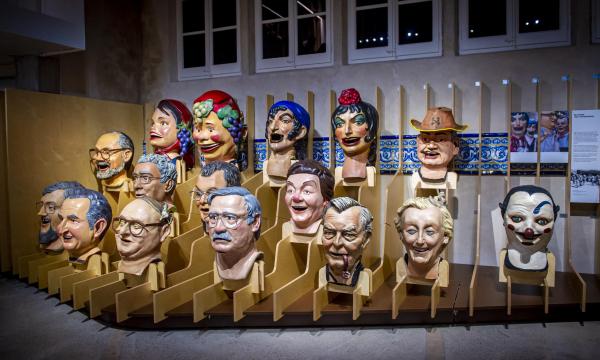Tourist attraction - Museum/Interpretation Centre
Casa de la Festa Major
Vilafranca del Penedès
You can find it at:
In this museum, you will find on permanent display all the main elements of a festival that originated in the 17th century.
A journey through time and space, where the emotions, traditions and beliefs that shape Festa Major of Vilafranca will be reveled to you as if you were immersed in the joyful hustle that Vilafranca experiences from August 29th to September 2nd.
The Visit
The Festa Major de Vilafranca is a highly anticipated event for the people of Vilafranca. But Vilafranca Festa Major is also experienced throughout the rest
of the year.
The Casa de la Festa Major is the space where you can delve into the knowledge of the festival and experience the sensations felt during the five most
awaited days in Vilafranca.
In this space, the set of festive imagery and bestiary pieces are exhibited, as well as information about the dances, human tower groups, main participants
and the various traditional events that are part of this festival, which since 1991 has been declared a Heritage Festival of National Interest.
The Collection
The Festa Major of Vilafranca has a festive procession that is one of the longest in Catalonia and one that has endured the most over time.
It is composed of 21 elements, including fire groups, bestiary and imagery, dances, and human towers (one group of Falcons, three of castells, and one Ball de Moixiganga).
Among these, the elements that appeared in the Corpus Christi procession in the early 17th century and are part of the procession – the Drac (dragon), Gegants (giants), Àliga (eagle), and Cotonines – stand out, along with the peculiar, unique, and original Nans (dwarfs) and Capgrossos (big heads).
Additionally, the Children's Festa Major has its own pieces, which are small replicas of those used in the Festa Major.
The Building
The Casa de la Festa Major is located in a unique building designed by the municipal architect Santiago Güell i Grau in 1911. In 1913, it was inaugurated as the Chicken and Poultry Market, but was later converted into the Fish Market. In 1927, it was renovated under the direction of the municipal architect Antoni Pons i Domínguez.
The building has a hexagonal plan adapted to the slope of the land and a pavilion roof. The windows are framed by an exposed brick profile, typical of modernist industrial buildings. In 1985, architect Pau Batlle i Solé developed the project to convert the old Fish Market into a space dedicated to the Festa Major.
Between 1985-1987, rehabilitation works were carried out on the space. These works were inaugurated on January 18, 1987.
Images by: Domènec Freixedes
